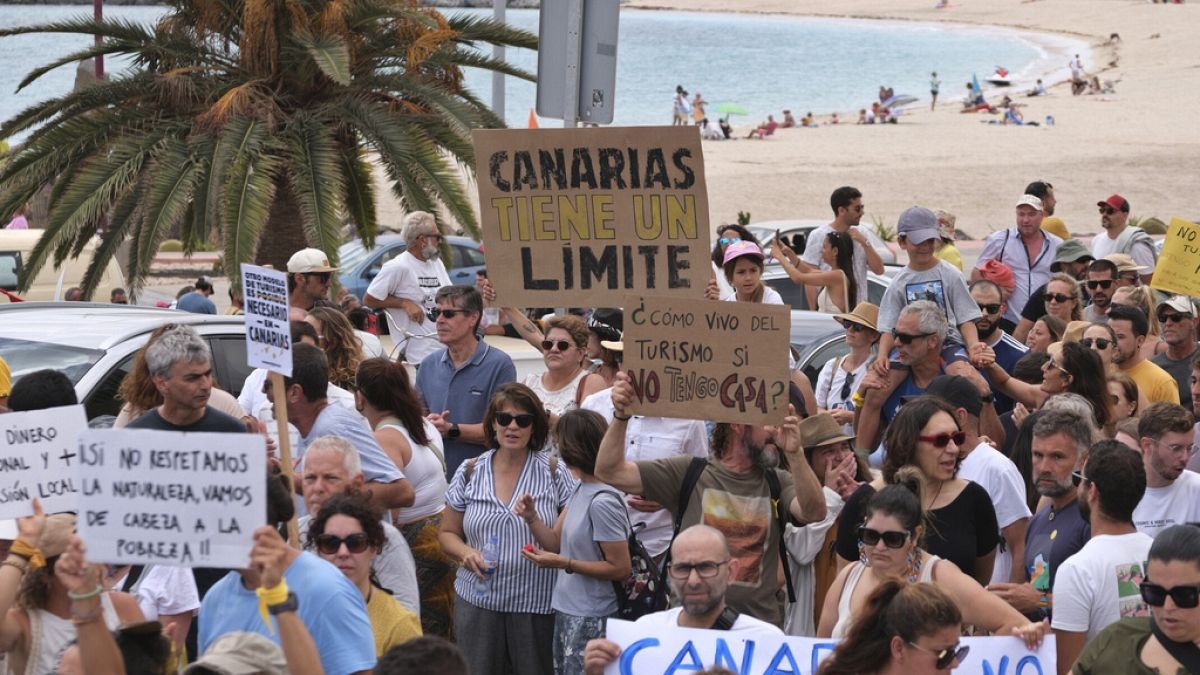
As the peak summer tourism season in Europe approaches, tourist hotspots are feeling increasing pressure, and the problem now is not just disruptive behavior. The increase in the number of tourists has brought enormous pressure to health services, waste management, water supply, and housing, harming the interests of residents. The increase in hotel and housing development is endangering historical sites, biodiversity, and natural resources. Recently, several European countries have erupted with discontent, ranging from direct graffiti to hunger strikes, forcing local authorities to reassess the relationship between tourists and residents.
Firstly, one of the most urgent impacts of excessive tourism in Spain is the lack of housing for residents and the soaring rent. In the city center of Malaga, Spain, local residents have covered walls and doors with stickers to express their dissatisfaction to tourists. Malaga has long been a popular destination for foreign tourists due to its sunny climate and relatively low cost of living. However, with the influx of digital nomads, the shortage of housing has become increasingly severe. The Canary Islands are also experiencing similar difficulties. Activists claim that over 10 million foreign tourists come to the archipelago for vacation every year, which is disrupting local life. According to reports, due to soaring housing prices, local residents have to sleep in cars and caves. The construction of accommodation and service facilities to welcome a large number of tourists on vacation to the Canary Islands has also put pressure on land use, waste management, water supply, and biodiversity. A protest group on Tenerife Island plans to go on a hunger strike against the construction of two new hotels. Although the authorities have suspended the construction of the Ratgita Hotel and Kunadel Alma Hotel located in Adhe Port on Tenerife Island due to environmental violations, these constructions have recently resumed.
Secondly, Venice has long faced the problem of tourist numbers. One of the most destructive impacts of the city now is the continuous expansion of short-term leasing, with more tourist beds than residents as of last year. Local residents are facing the problem of decreasing available rental properties and high rents. Susanna Poloni from the Venice Housing Solidarity Network said, "Every day, we face serious housing problems: homeless people, people with disabilities living in high-rise buildings without elevators, people living in damp and dilapidated houses, and even those declared unhygienic by the health system."
Furthermore, the town of Halstadt in the Austrian mountains is renowned for its beautiful background and is considered the inspiration for Disney's film "Frozen". As a result, over one million tourists flock to this destination every year, many of whom want to take selfies at famous attractions. Last year, the residents of the town felt very dissatisfied and erected fences to prevent tourists from taking photos. Although the fence was later demolished due to strong opposition on social media, people hope that this measure can prevent tourists from gathering at popular selfie locations and disturbing residents' lives due to excessive noise.
Overall, the responsibility for dealing with excessive tourism needs to be shared by multiple parties. Local governments and managers of tourist attractions must be aware that the development of the tourism industry has clear limitations, and it is crucial to prioritize the welfare of local residents above the demands of the global tourism supply chain. The tourism destination management system must also fully consider the transportation system and mobility, protect local public spaces, and the daily life of residents, such as economy and housing. Whether it is urban managers, tourism operators, civil society organizations, or local residents, investigation and research, program planning, and continuous dialogue are all crucial.

Since 2025, the conflict between the United States and Europe over the governance of the digital economy has continued to escalate.
Since 2025, the conflict between the United States and Euro…
When German Chancellor Mertz officially announced that he w…
On December 3rd local time, the copper price on the London …
The European Commission announced a new economic security s…
The European Commission announced a new economic security s…
For nearly a year, US President Donald Trump has launched a…